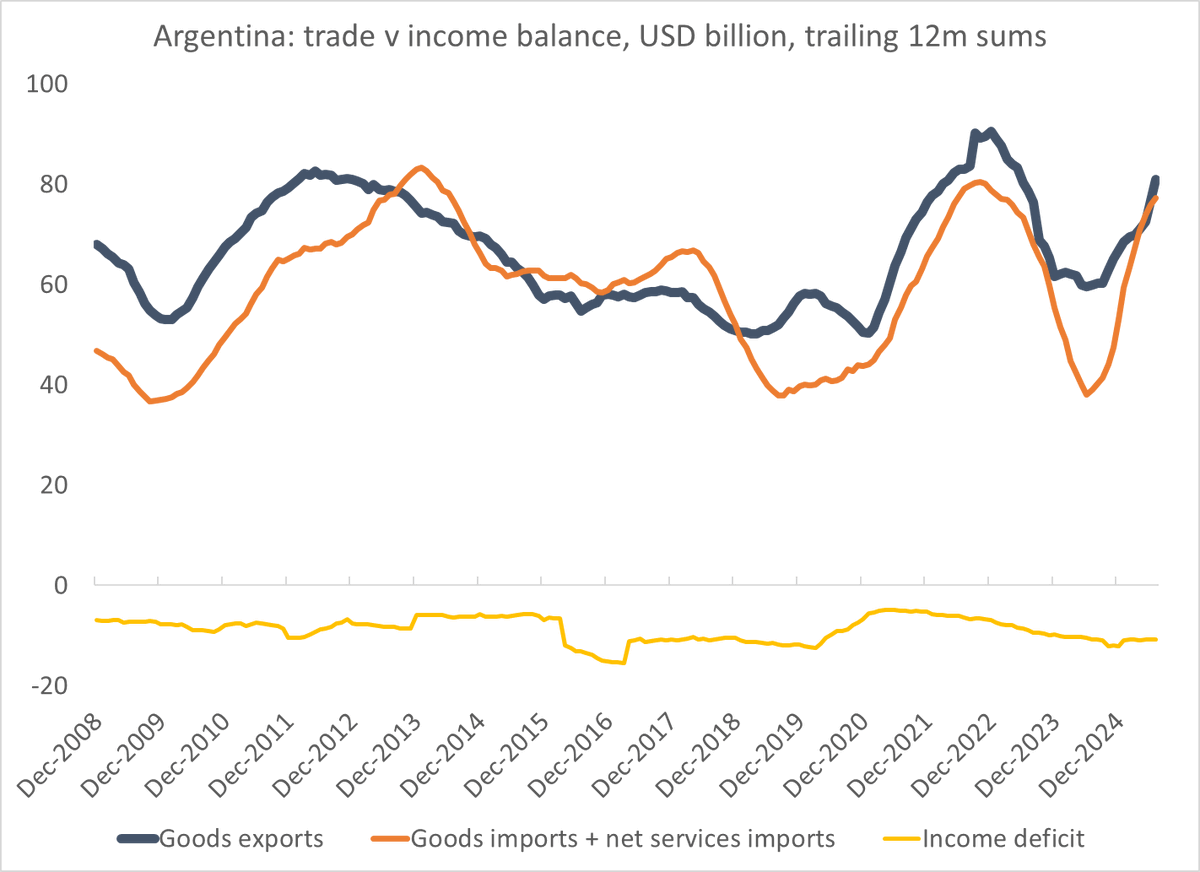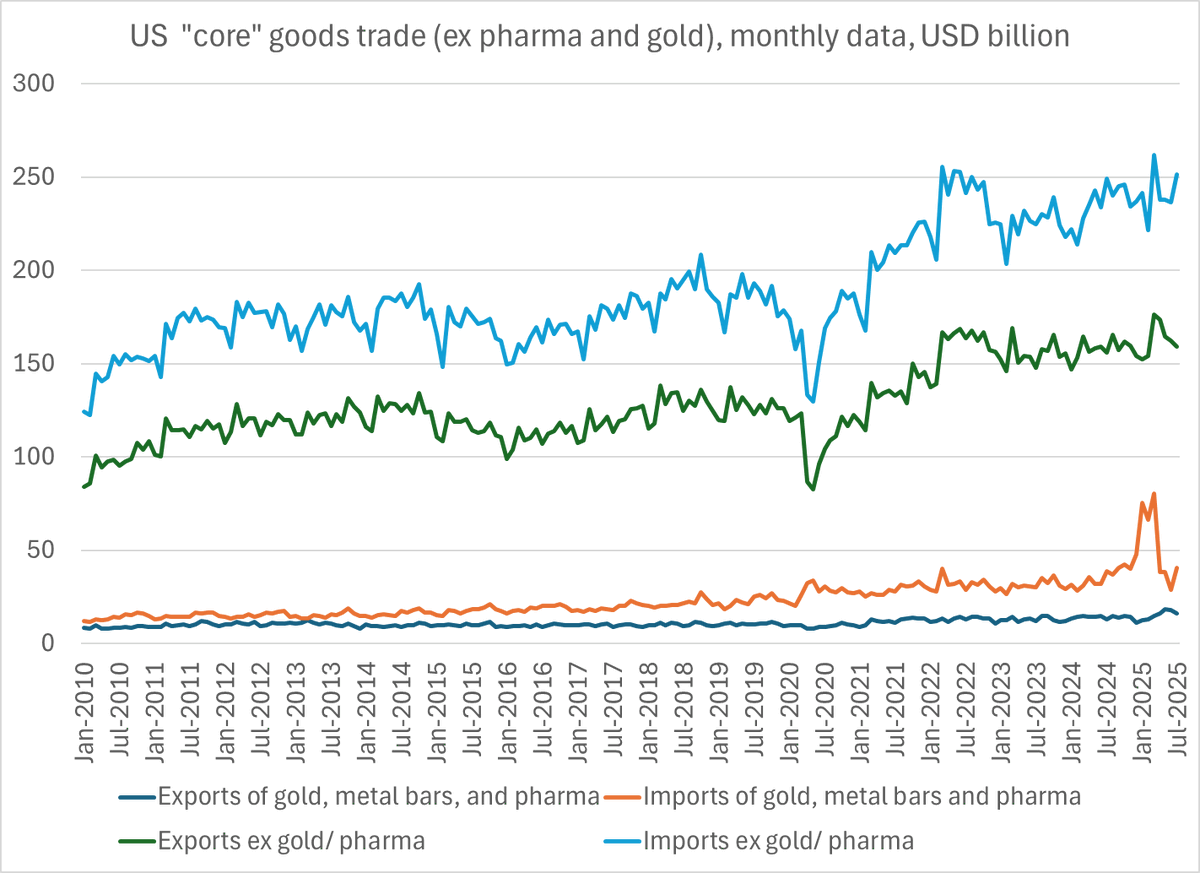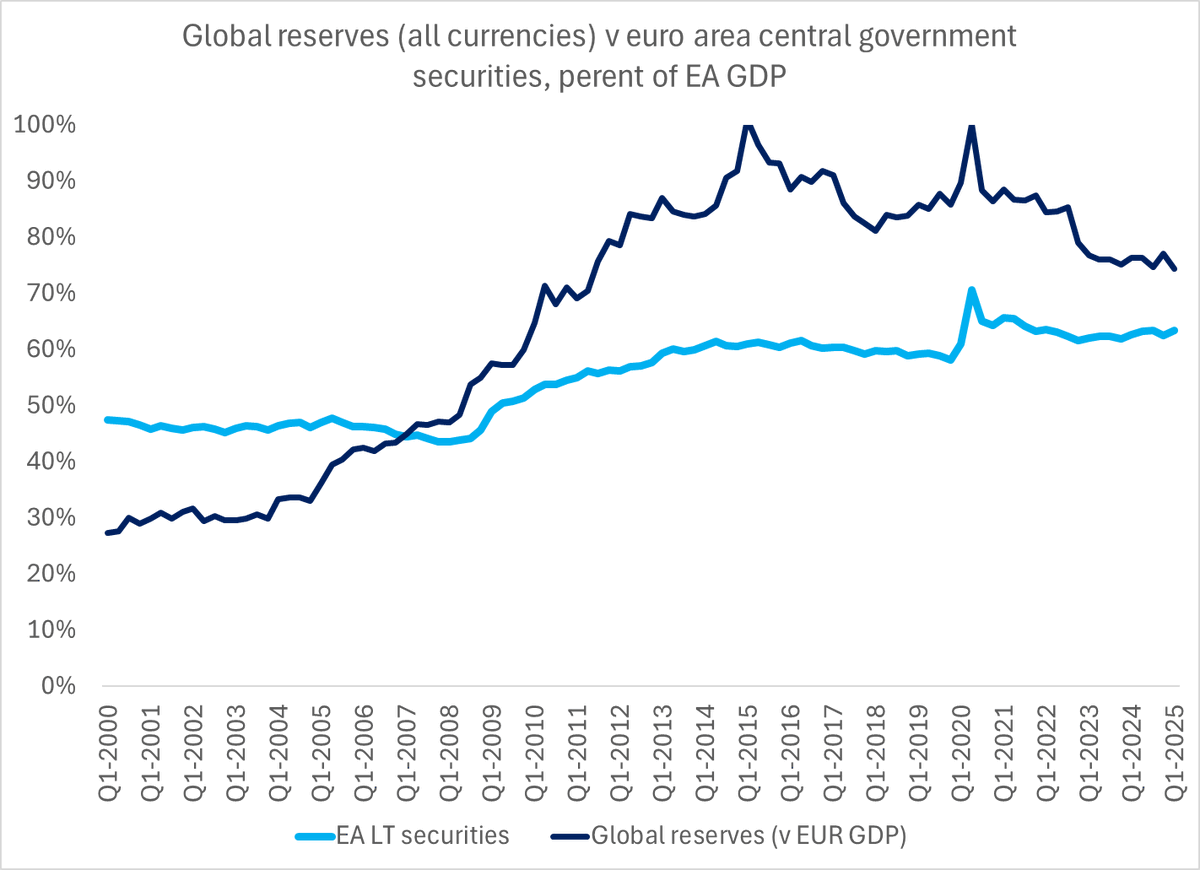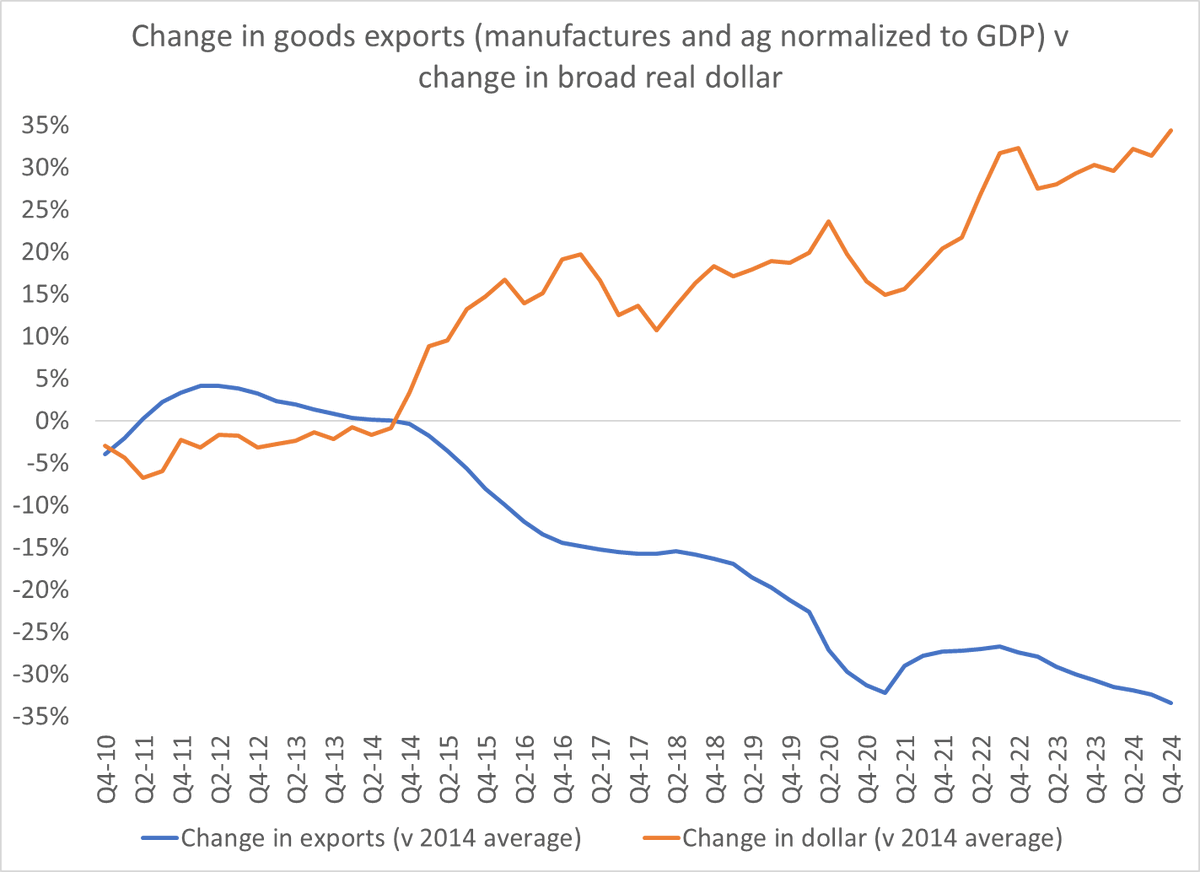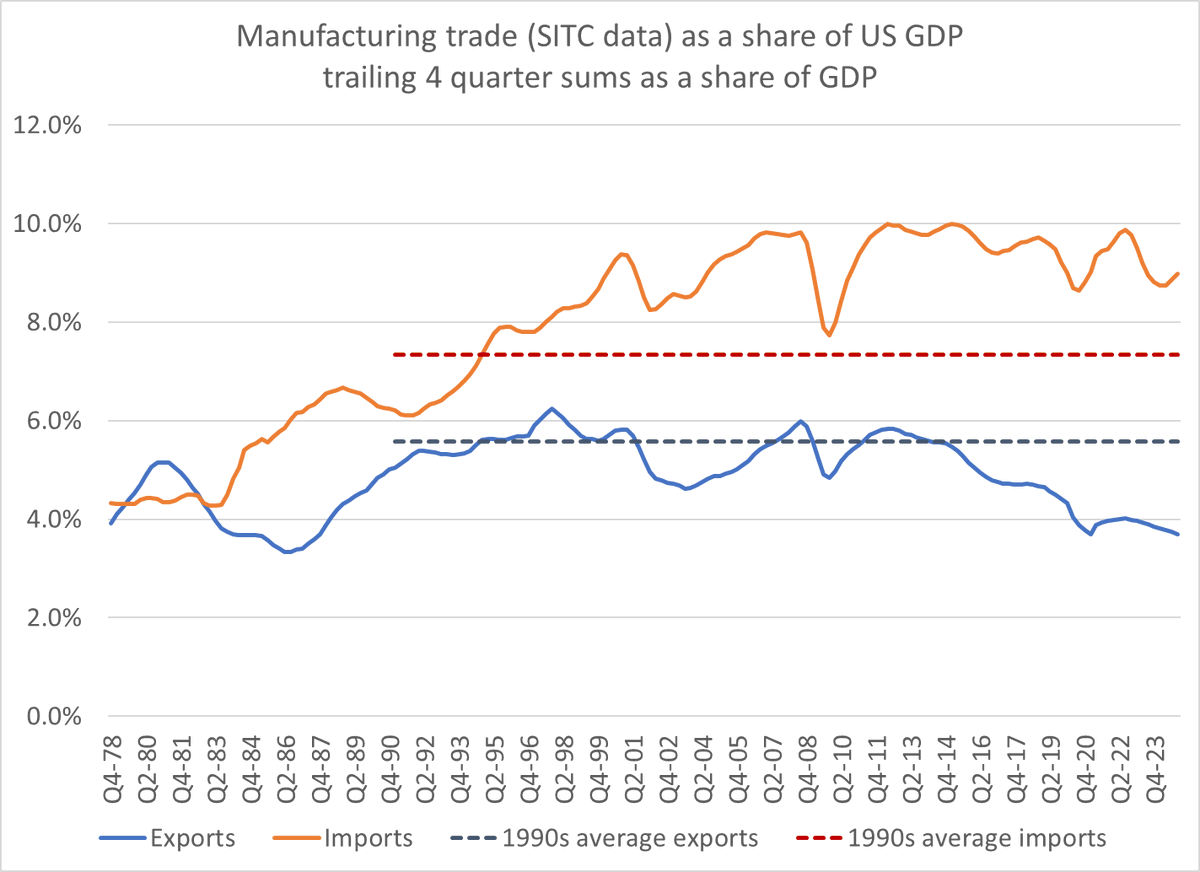The Argentine's are pushing for a direct loan (which risks being a bailout for an unsustainable policy regime ... ) from the United States through the Exchange Stabilization Fund
But I suspect the question of what more the IMF can do will also come up ...
1/
But I suspect the question of what more the IMF can do will also come up ...
1/

The issue is one of balance sheet concentration -- Argentina is getting close to being about 1/2 of all outstanding non concessional Fund credit ...
3/
3/
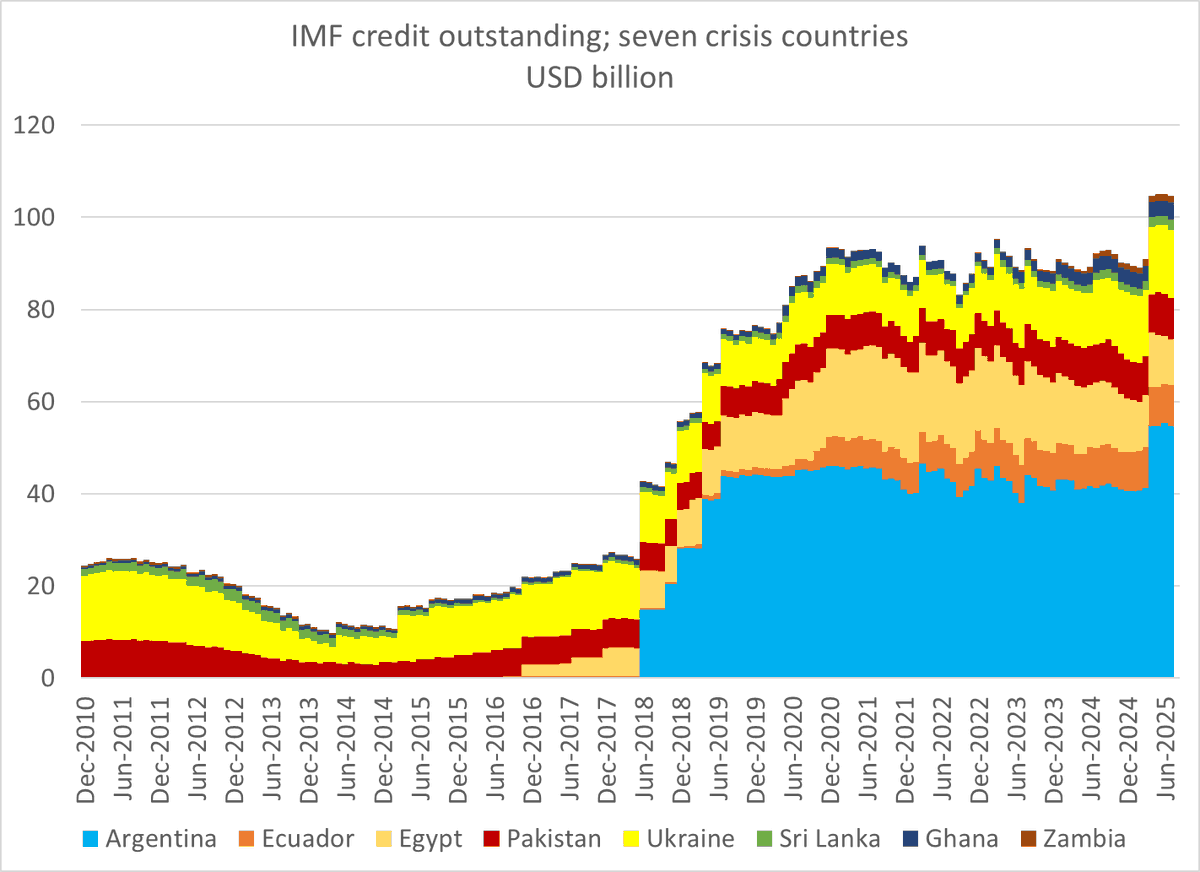
As a share of Argentina's GDP, Fund exposure is large -- but it could be raised in extremis ... (note GDP is now inflated by the overvalued peso)
4/
4/
The real issue isn't a balance sheet one (imo) it is a policy one -- namely does it make sense to double down on the current policy framework (including a defense of the peso at the edge of the band that could deplete Argentina's limited reserves) or not ...
5/
5/
My vote is no -- it doesn't make sense to double down on the current program.
But that is the key call.
There are all policy options here (a broader band so more peso depreciation, a bond debt reprofiling, etc)
6/
But that is the key call.
There are all policy options here (a broader band so more peso depreciation, a bond debt reprofiling, etc)
6/
and my personal view is that the peso is still significantly overvalued (last data point in chart is end June) for a country with Argentina's mix of external debt (a lot) and reserves (not many)
7/7
7/7
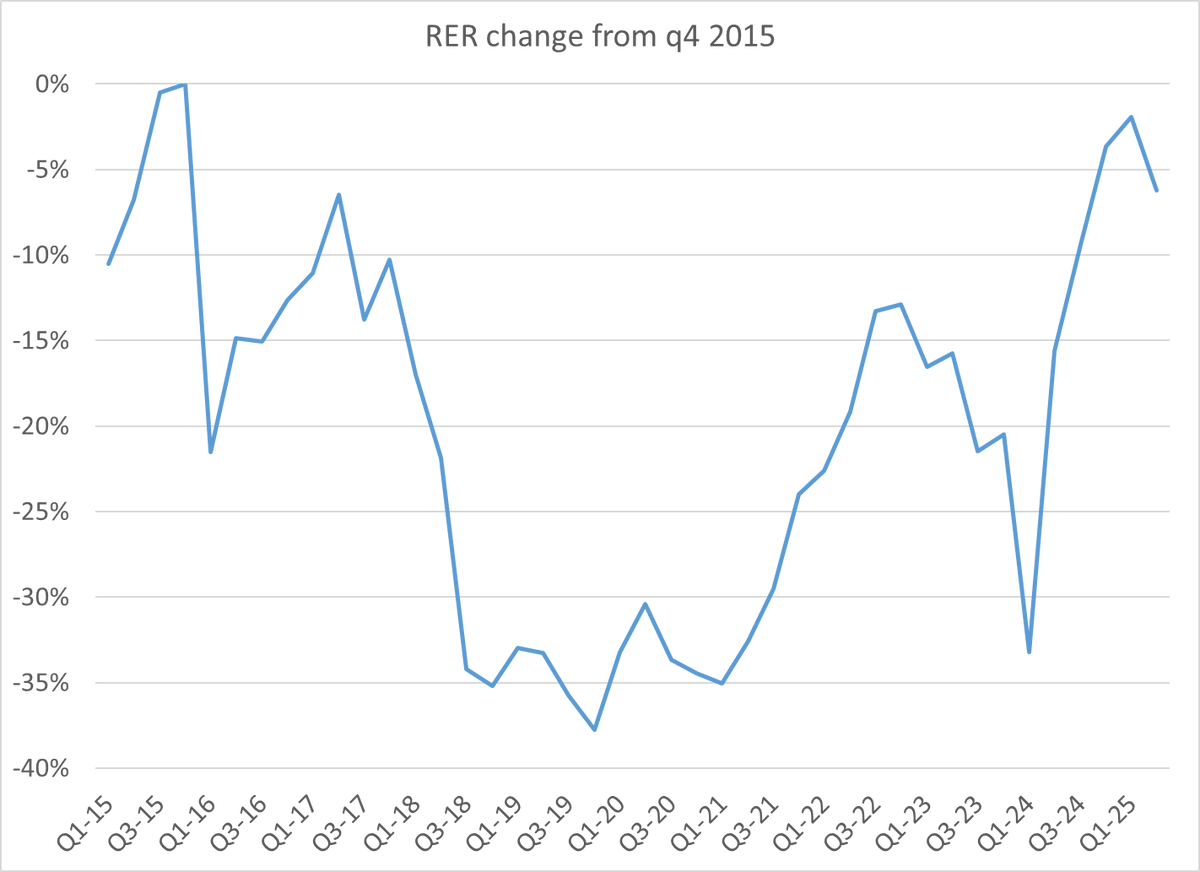
• • •
Missing some Tweet in this thread? You can try to
force a refresh




